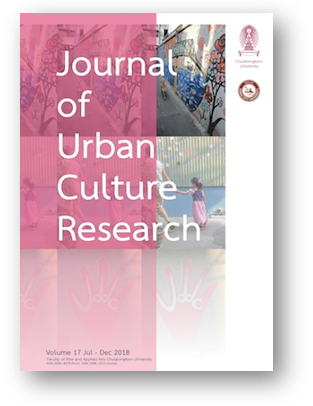The Recreational Landscape of Weltevreden Since Indonesian Colonization
DOI:
https://doi.org/10.14456/jucr.2018.8Keywords:
Weltevreden, Uptown, Recreational Landscape, Colonial Society, Urban DesignAbstract
This paper explores the formation of recreational landscapes in Weltevreden (now the central part of Jakarta) during the colonial age. Before the 20th Century, the Dutch colonial government pursued the so-called “liberal policies” that consequently, the colony needed to go beyond the narrow objective of economic gain, by promoting social institution to improve the quality of life. It encompassed governmental, educational, and religious aspects, that bring progress and more opportunities to gain prosperity. Recreations formulated as part of the essential elements of personal development and civilization to reflect the values of the daily life and introduce modernity. The study found that the prototypical play spaces in Weltevreden were discriminatory accessible to the public and sporadically provided. In the post colonial age, the play spaces transferred into public spaces that continuously renegotiated to assimilate and transform the old into the new meaning in concomitant with the new urban design of Jakarta.
Downloads
Published
How to Cite
Issue
Section
License
Authors authorize the JUCR to publish their materials both in print and online while retaining their full individual copyright. The copyright of JUCR volumes is retained by Chulalongkorn University.
The views and opinions expressed herein are those of the individual author(s) and do not necessarily reflect the policies or opinions of the Journal (JUCR), it editors and staff, Chulalongkorn University, or Osaka Metropolitan University.








